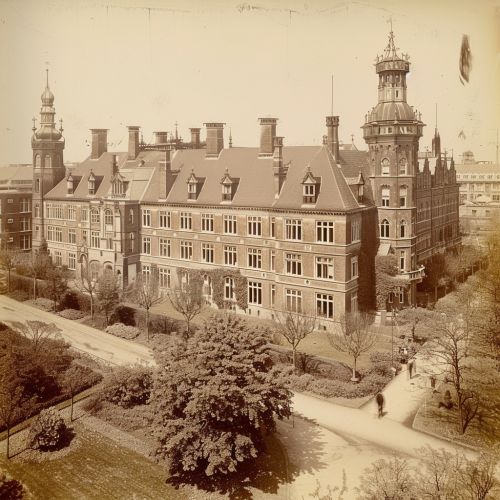Jacob Emanuel Lange
Early Life
Jacob Emanuel Lange was born on 2nd April 1864 in Vordingborg, Denmark. He was the son of a school principal, which likely influenced his early interest in education and academia. Lange's early life was largely uneventful, but his fascination with the natural world was evident from a young age. He spent much of his childhood exploring the local flora and fauna, developing a particular interest in Mycology.
Education
Lange attended the University of Copenhagen, where he studied natural sciences. He showed a strong aptitude for botany, and his interest in mycology deepened during his university years. Lange graduated with a degree in natural sciences in 1886.


Career
After graduation, Lange worked as a teacher, sharing his passion for the natural world with his students. However, his interest in mycology remained a significant part of his life. He continued to study and research fungi in his spare time, contributing to the scientific community's understanding of the subject.
In 1897, Lange was appointed as a lecturer at the University of Copenhagen, where he taught botany. His lectures were well-received, and he was known for his ability to explain complex concepts in an accessible way. Lange's reputation as a skilled educator and respected mycologist grew, and in 1924, he was promoted to professor.
Contributions to Mycology
Lange's most significant contributions to mycology were his detailed studies of Danish fungi. He published several comprehensive works on the subject, including "Flora Agaricina Danica," a five-volume series detailing the agaric fungi of Denmark. This series, published between 1935 and 1940, remains a significant resource for mycologists today.
Lange's work was characterized by his meticulous attention to detail and his commitment to thorough research. He was known for his rigorous methodology, which often involved extensive fieldwork and careful observation. Lange's contributions to mycology extended beyond his own research, as he also mentored many students who went on to make their own significant contributions to the field.


Later Life and Legacy
Lange retired from the University of Copenhagen in 1934, but he continued to contribute to mycology. He remained active in the scientific community, attending conferences and continuing his research. Lange passed away on 2nd January 1941, leaving behind a significant legacy in the field of mycology.
Lange's work continues to be highly regarded in the scientific community. His detailed studies of Danish fungi have provided a foundation for further research, and his commitment to rigorous methodology has influenced many mycologists. Lange's contributions to mycology have had a lasting impact, and his work continues to be a valuable resource for researchers in the field.
